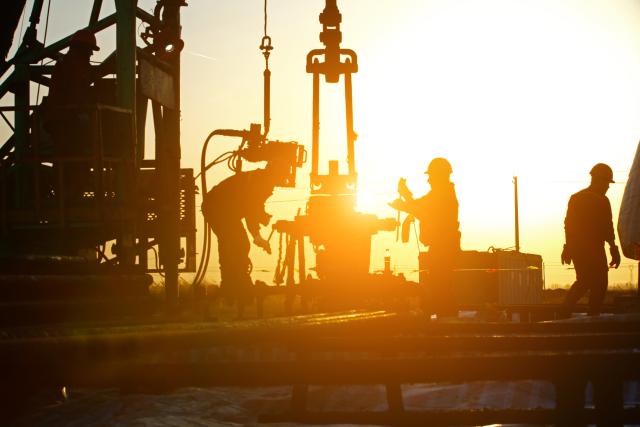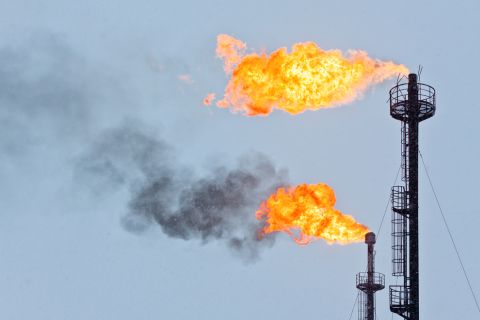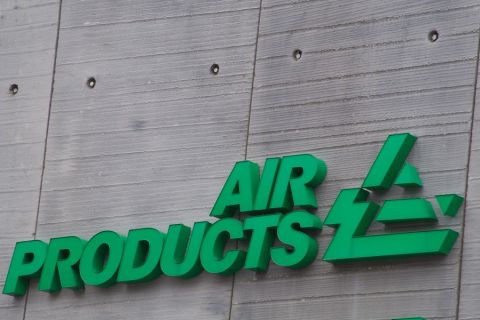
Russia accounts for about 5% of Schlumberger’s and Baker Hughes’ revenues. (Source: pan demin/Shutterstock.com)
This story was updated on March 19 at 10:54 a.m. CDT.
Baker Hughes on March 19 joined the chorus of western oilfield services companies announcing intentions to suspend new investment in Russia. The oilfield services company joined Halliburton and Schlumberger, which both announced their intentions a day earlier.
“The crisis in Ukraine is of grave concern and we strongly support a diplomatic solution. We condemn violence and our hearts go out to the people and families of those impacted,” said Lorenzo Simonelli, chairman and CEO of Baker Hughes, in a statement.
Schlumberger CEO Olivier Le Peuch released a similar statement late on March 18 saying it will suspend technology deployment to existing operations in Russian and immediately suspend new investment in the country.
"We continue to actively monitor this dynamic situation and will fulfill any existing activity in full compliance with applicable international laws and sanctions," Le Peuch said in the statement. "Safety and security are at the core of who we are as a company, and we urge a cessation of the conflict and a restoration of safety and security in the region.”
Earlier in the day on March 18, Halliburton Co. said it has suspended future business in Russia, including for certain state-owned Russian customers, in compliance with U.S. sanctions after Moscow's invasion of Ukraine.
The company said it has no active joint ventures in the country and had weeks ago halted all shipments of specific sanctioned parts and products to Russia.
Schlumberger, Baker Hughes and Halliburton are the three biggest western oilfield services companies, hired to do the frontline work at oilfields such as drilling wells and producing oil and gas. The U.S.-listed companies conduct billions of dollars of business in Russia and are partners of state-backed producers Rosneft and Gazprom.
Other Western producers such as Exxon Mobil Corp., BP Plc, Shell Plc and Norway's Equinor ASA have either suspended business or announced plans to abandon their Russia operations, leaving behind their investments.
Recent U.S. sanctions on Moscow ban American imports of Russian oil, natural gas and fuel products and also bar U.S. companies from making “new investments in the energy sector” in Russia. The measure is meant to “ensure that American companies and American investors are not underwriting Putin’s efforts to expand energy production inside of Russia”, a senior administration official said of the order.
The EU on March 15 also put in place what it called “a far-reaching ban on new investment across the Russian energy sector” as part of a blast of new economic sanctions, further tightening western companies’ ability to operate in the country.
Russia, which calls its actions in Ukraine a "special operation", is among the world's largest oil and gas producers that mainly rely on home-grown service providers.
According to Rystad, projects in Russia were expected to require about $22 billion for drilling and other services this year, and had been expected to grow before the country’s invasion of Ukraine. U.S. and European countries have been careful to avoid a sudden disruption to Russian oil and gas flows while designing sanctions.
Schlumberger has invested more than $10bn in Russia over the past decade. Last November, the company signed a deal with Gazprom Neft, Gazprom’s oil-focused subsidiary, to develop a “localized” business based on Schlumberger’s digital oilfield technologies.
Baker Hughes last summer touted a deal with Rosneft to use its technology to help the Russian company slash emissions from its operations. Russia accounts for about 5% of Schlumberger’s total revenues, which were $22.9 billion in 2021, or about $1.15 billion. Protesters gathered outside company offices in Texas earlier this month to call on Schlumberger to sever connections with Russia, according to the Houston Chronicle. Russia also made up about 5% of Baker Hughes’ revenues, Brian Worrell, its CFO, told analysts recently. The company’s revenue was $20.5 billion in 2021, implying it does about $1bn of business in the country.
This article features reporting by Justin Jacobs and Myles McCormick, Financial Times, with additional reporting from Reuters.
Recommended Reading
Green Swan Seeks US Financing for Global Decarbonization Projects
2024-02-21 - Green Swan, an investment platform seeking to provide capital to countries signed on to the Paris Agreement, is courting U.S. investors to fund decarbonization projects in countries including Iran and Venezuela, its executives told Hart Energy.
Air Products Sees $15B Hydrogen, Energy Transition Project Backlog
2024-02-07 - Pennsylvania-headquartered Air Products has eight hydrogen projects underway and is targeting an IRR of more than 10%.
First Solar’s 14 GW of Operational Capacity to Support 30,000 Jobs by 2026
2024-02-26 - First Solar commissioned a study to analyze the economic impact of its vertically integrated solar manufacturing value chain.
TechnipFMC Eyes $30B in Subsea Orders by 2025
2024-02-23 - TechnipFMC is capitalizing on an industry shift in spending to offshore projects from land projects.
SunPower Begins Search for New CEO
2024-02-27 - Former CEO Peter Faricy departed SunPower Corp. on Feb. 26, according to the company.





